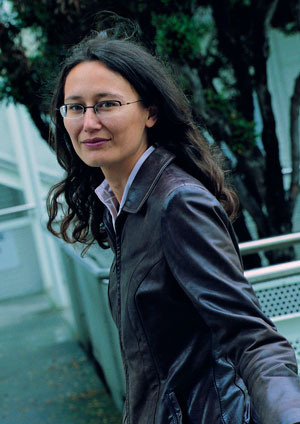
 Dr Mele Taumoepeau
Dr Mele Taumoepeau
PhD, Psychology
Lecturer, Department of Psychology, University of Otago
Despite the good advice Mele Taumoepeau had received about seeking a high quality supervisor, reality took the decision somewhat out of her hands. Mele's preferred supervisors were overseas or busy. And as a mature student who had neither researched this area of psychology before, nor studied at Otago, she had neither the contacts nor knowledge to open the right doors, or know which ones to knock on.
Ultimately she was paired up with a new academic in the department, with a similar research interest in children's social cognition, keen to help her explore how children develop an understanding of their social world. “He turned out to be fantastic. But it was luck.”
All the same, Mele says she didn't rush into the arrangement. “I read his CV and the publications he'd written. I met him, took away some readings, met him again. I was sussing him out. The most important thing is that you get on, and I wanted to be sure of that.”
The shift from working life as a speech language therapist to full-time study and parenthood was “tricky” says Mele. And as two newbies, Mele and her supervisor were in a similar situation, both figuring out the systems at Otago. “There was another postgrad in the department who saved me, basically,” remembers Mele. “She would tell me where to get money for conferences from and how things worked.”
Mele also acknowledges the support of her husband and friends, as well as the University's Pacific Islands Centre. She made the effort to attend as many symposiums and social events as possible, “often with my two daughters in tow – they came everywhere with me”.
She came to rely on the University childcare and Kelsey Yaralla Kindergarten, “which became like extended families”.
“Towards the end I imported my in-laws from the UK to look after the kids so I could get my thesis finished.”
PhD study was, says Mele, a juggle. And a somewhat self-indulgent one at that. She was constantly aware that she was being afforded an opportunity to immerse herself in a field of study, and recalls a sense of great responsibility to make the most of it.
But, she says, “I adored it. It was difficult, and I remember looking at a stack of 30 journal articles in an area I'd never studied before and realising I needed to plough through them. But the wonderful thing was, I was allowed to!”